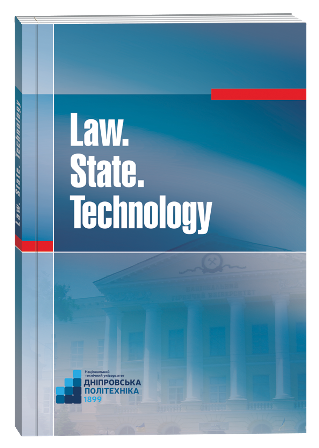SELF-DEFENSE AS AN ALTERNATIVE WAY OF RESOLVING LEGAL DISPUTES
DOI:
https://doi.org/10.32782/LST/2024-1-1Keywords:
mediation, negotiations, property liability, self-defense, resolution of legal disputesAbstract
The purpose of the scientific article is to characterize self-defense as an alternative way of settling legal disputes. It has been established that the effectiveness of the settlement of legal disputes is evidence of a high-quality and sustainable system of legislation. It was determined that the achievement of the stability and quality of the legal system is determined by ensuring the conditions for the protection of individual rights and the functioning of various effective methods of settling legal disputes. It is emphasized that the settlement of legal disputes is often associated with the application of a person's appeal to the relevant jurisdictional bodies, which are judicial bodies, administrative bodies, and law enforcement bodies. It is substantiated that the use of self-defense mechanisms in legal disputes can be a very effective way to improve the efficiency of dispute resolution and avoid costly and lengthy court processes. It was concluded that the reasons for the effectiveness of the use of self-defense should include: speedy resolution of disputes; procedural and property saving of time; maintaining relationships (resolving disputes through self-defense mechanisms allows parties to maintain positive relationships, which can be important, especially if they intend to continue interacting in the future); flexibility of settlement (alternative methods of dispute settlement include various methods, such as negotiations, consultations, arbitration, mediation, etc., which gives the parties the opportunity to choose the most suitable method of dispute resolution for them); the ability to achieve a balance and take into account the interests of the parties (the way in which self-defense is able to more fully take into account the interests of the parties and find a compromise solution that would satisfy both parties); dispute resolution expertise (when self-defense is used, specialized professionals with appropriate expertise can participate, which increases the objectivity and quality of the decisions made).
References
Цивільне право України. Загальна частина : підруч. / за ред. О. В. Дзери, Н. С. Кузнєцової, Р. А. Майданика. Київ : Юрінком Інтер, 2010. 977 с.
Покровська А. О. Розвиток самозахисту як форми захисту цивільних прав у римському праві. Право і суспільство: актуальні питання і перспективи розвитку : матеріали V Міжнар. наук.-практ. конф. Частина 1. (м. Полтава, 10 грудня 2020 р.). Полтава. 2020. С. 346–348.
Размєтаєва Ю. С. Доктрина та практика захисту прав людини: навч.посіб. Київ: Видавництво «ФОП Голембовська О.О.», 2018. 364 с.
Mishyna N. V. Doctrine of separation of powers at the local government level: the Ukrainian experience. Молодий вчений. 2015. №12. С. 97–101.
Золотухіна Л.О., Легеза Ю.О. Гарантії захисту публічного інтересу. Юридичний бюлетень. 2020. Випуск 14. С. 39–48
Покровська А. О. Самозахист у договірних відносинах. Кваліфікаційна наукова праця на правах рукопису. Дисертація на здобуття наукового ступеня доктора філософії за спеціальністю 081 «Право». Національний юридичний університет імені Ярослава Мудрого, Міністерство освіти і науки України, Харків, 2023. 230 с.
Зубко Т. П. Медіація як спосіб альтернативного врегулювання спорів в європейському просторі. Збірник наукових праць Харківського національного педагогічного університету імені Г.С. Сковороди. 2014. Випуск № 21. С. 130–136.
Кучмієнко О. Про ідеальний спосіб врегулювання спорів та його головні переваги. Асоціація правників України. https://uba.ua/ukr/news/7823
Цивільний кодекс України: Закон України від 16 січня 2003 року № 435-IV. URL.: https://zakon.rada.gov.ua/laws/show/435-15#Text
Треушніков М. К., Луспеник Д. Д. Реалізація права на самозахист цивільних прав – новела нового Цивільного кодексу України: поняття і межі здійснення. Адвокат. 2004. № 11. С. 3–8.








